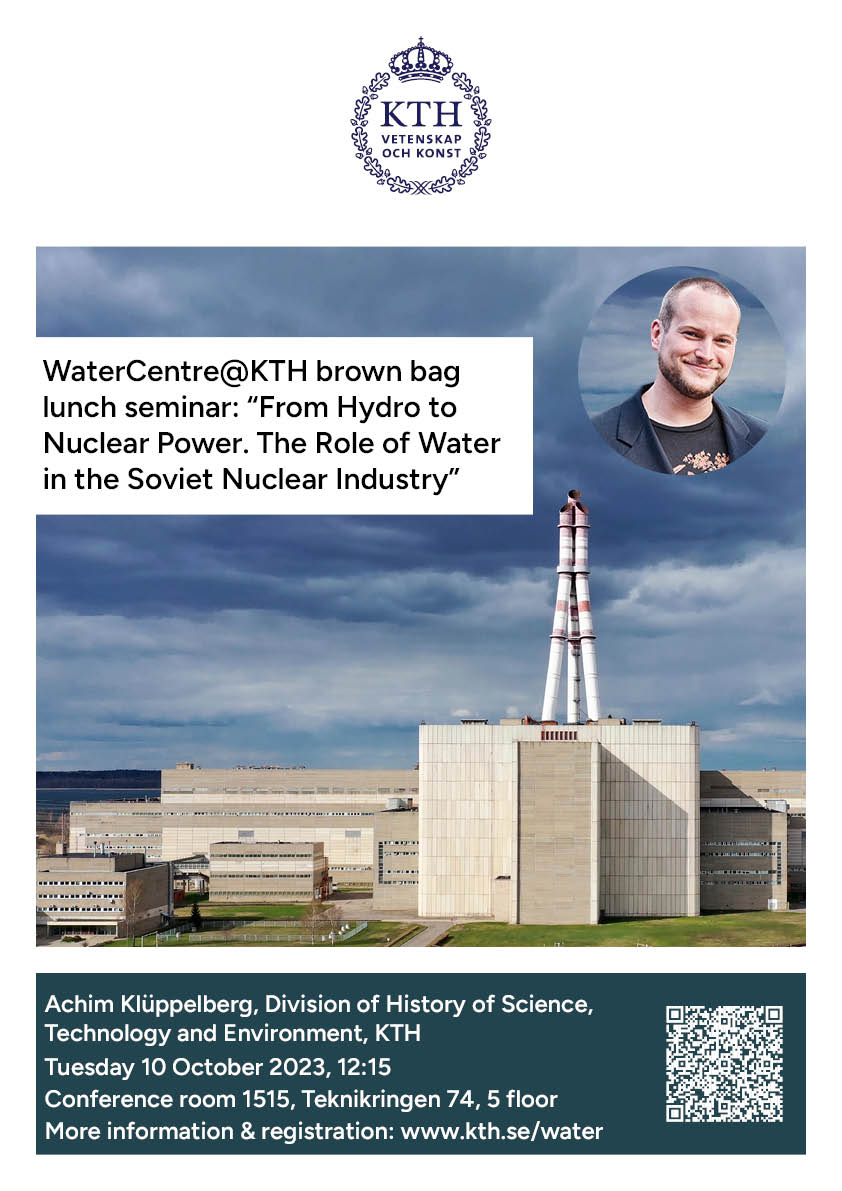Soviet nuclear power plants closely connected to rivers

Nuclear power production in the Soviet Union was closely connected to rivers. Many were built next to rivers dammed for construction of the hydro-power plants. But all plans were not finalised. A nuclear power plant next to the lake Võrtsjärv in present day Estonia never became reality. These were some highlights from a lunch seminar with Achim Klüppelberg.
Access to cooling water is essential for any nuclear power plant. During this lunch seminar, Achim Klüppelberg explained that many nuclear power plants in the Soviet Union were constructed next to rivers also utilized for hydro-power. The rationale for this is not fully clear, but one reason could be military strategic considerations.
It is also unclear why ponds were constructed in the dammed rivers next to the power plants. However, today this turns out to be fortunate. In present-day Ukraine, the occupied Zaporizhzhia nuclear power plant remains in relatively safe operation for now, despite the breach of the downstream dam that has lowered the water level in the remaining Dnipro River far below the level needed to supply the power plant with cooling water.
Achim Klüppelberg also talked about plans in the 1960s for a nuclear power plant by Lake Võrtsjärv in the Estonian Soviet Socialist Republic. This was ultimately never constructed after the Estonian representatives in the planning committee convinced the delegates from Moscow that it wouldn't be feasible. Since the average depth of the lake is less than three meters, although the surface is 270 square kilometers, the impact of a nuclear power plant on, for example, biodiversity would probably have been massive.
Another recurring theme was aquaculture. There were frequent plans for fish farms in the warm cooling water ponds. However, they seem to have had little success, and since the welding wasn't always of the best quality, resulting in nuclear contamination of the waters, that may be a cause for gratitude.
Upcoming lunch seminars and other WaterCentre@KTH events can be found in the event calendar.
